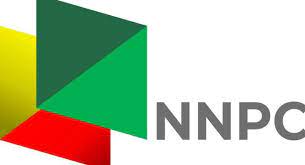- Targets $10 per barrel production cost
The Nigerian National Petroleum Company Limited (NNPC) yesterday stressed that the Petroleum Industry Act (PIA) aided the growth of inflow of Foreign Direct Investment (FDI) from a paltry $775 million in 2018 to $4 billion in 2022.
Speaking on Day 4 of the ongoing Nigeria International Energy Summit (NIES), in Abuja, the Chief Upstream Investment Officer, NUIMS, Bala Wunti, stated that despite the challenges, the NNPC unit was targeting $10 per barrel production cost in the near term.
Through the instrumentality of the PIA, Wunti, who was represented by the NUIMS Head, Finance, Chisoma Elewa-Ikpakwu, stated that the unit was also beginning to see enhancements in its operations.
According to him, the host communities are now more friendly since the PIA clearly specified the role and responsibility of stakeholders, which is helping to provide the much-needed peaceful investment climate.
“So also in Nigeria, we’ve seen a new trend in the movement of money. Foreign direct investments into our sector had gradually peaked at $8.8 billion in 2011. This went down to as low as $775 million in 2018. But with the PIA and all the reforms that are going on, we saw it beginning to gradually increase to $3.8 billion in 2021 and last year, we saw it hovering around $4 billion.
“At the NNPC, what are we doing? The PIA has empowered us and then the NNPC is now profit-driven, more commercially oriented and what the NNPC has done in turn is to empower its subsidiaries,” Wunti added.
He stated that for NUIMS, a service unit of NNPC limited with the responsibility of managing NNPC’s investment in the upstream sector, it has many advantages that make the unit unique.
He listed the advantages of the unit as a broad resource base and location in diverse operations, including land, swamp and shallow water, stressing that energy remains a key enabler of developments.
In the last one year, the NUIMS head stated that the NNPC has established a hydrocarbon industry security architecture, which has seen production improving from about 1 million barrels per day in the last quarter of 2022 to about 1.6 million per day in February this year, with a daily average of 1.5 million barrels per day currently.
He listed other achievements as the signing of Production Sharing Contract (PSC) agreements, stressing that prior to 2022 there were a lot of uncertainty in the industry because PSC were ‘sparing’ and partners didn’t really know how the renegotiation will go satisfactorily.
Wunti added that the NNPC was one of the first on the continent to be ISO certified, because it is determined to make the processes its procedures world class.
He noted that NUIMS has achieved an industry-wide electronic management solution which all partners in the industry have keyed into and has a shareholder level agreement for a logistics base in Akwa Ibom.
“And this is geared towards reducing costs of production. Our short term objectives include increasing our production and we want to ensure that as we are doing this, all assets produce positive cash flows.
“We intend to increase our gas monetisation. As for us in Nigeria, we believe that gas is not just a transition fuel but it is our destination energy. So we’re also working towards increasing our shareholders returns, we are invested with huge resources of over $60 billion assets.
“We need to satisfy shareholders and we want to do all these with zero incidents. This is underpinned by our philosophy of doing everything we are doing with efficiency, trust and sustainability of operations and we do it with speed and comply with all known regulations and at world class standard.
“Our long term and midterm objectives are to increase output to 2 million barrels per day and to increase gas production by about 1.5 billion SCF per day while working towards a $10 production cost per barrel,” he added.
On his part, the Group Chief Executive Officer of the NNPC, Mallam Mele Kyari, who was represented by the Managing Director of the Nigerian Gas Infrastructure Company Limited , Seyi Omotowa, stressed that the NNPC plays an active role in realising the intended benefits of the Decade of Gas initiatives.
“The opportunities to be unlocked from the Decade of Gas are numerous with significant benefits for Nigeria. With over 200 tcf of natural gas reserves and a potential of growing to 600 tcf, there will be enough resources for the numerous gas utilisation projects being developed by NNPC Limited and its partners
“NNPC is therefore taking advantage of the huge reserves to support growth in the power and industrial sectors, address energy poverty, reduce carbon-footprint and create more employment opportunities.
“Accordingly, NNPC has invested heavily in gas infrastructure as a key driver for gas development with our wide network of pipelines across the country such as the Escravos-Lagos Pipeline System (EPS), in the Western Network and the Oben-Sapele linked by Ajaokuta/Geregu Interconnector
“We also have the Eastern Network which includes Alakiri-Obigbo Node, Obigbo- Ikot Abasi and Imo River-Alaoji linked by the East/West Interconnector Obiafu- Obrikom-Oben1 and the OB-3 pipeline.
“Our key ongoing projects include the 2.2 bcf Ajaokuta-Kaduna-Kano Gas Pipeline currently under construction which has the capacity to deliver gas to the planned Abuja, Kaduna and Kano Power Plant Projects and to other existing and new gas based projects along the corridor.
“Other gas pipeline projects are also being progressed including the ELPS-Ibadan-Ilorin-Jebba Pipeline (EIIJ), Qua Iboe-Obigbo OB3 Pipeline and the Obigbo – Umuahia-Ajaokuta Pipeline (OUA)
“NNPC is also involved in other strategic gas facilities projects such as the Assa North-Ohaji South (ANOH) Gas Processing facility to complement the Oredo integrated Gas Handling Facility which has tremendously increased our domestic supply and utilisation,” he noted.
For the gas export market, Kyari stated that the on-going NLNG Train 7 will expand Nigeria’s LNG production capacity to about 30 million tons per annum (30 MTPA). This, he said, is in addition to the planned Nigerian Morocco and the Trans Sahara Gas Pipeline projects which will supply gas to sub-regional African countries and subsequently Europe.























